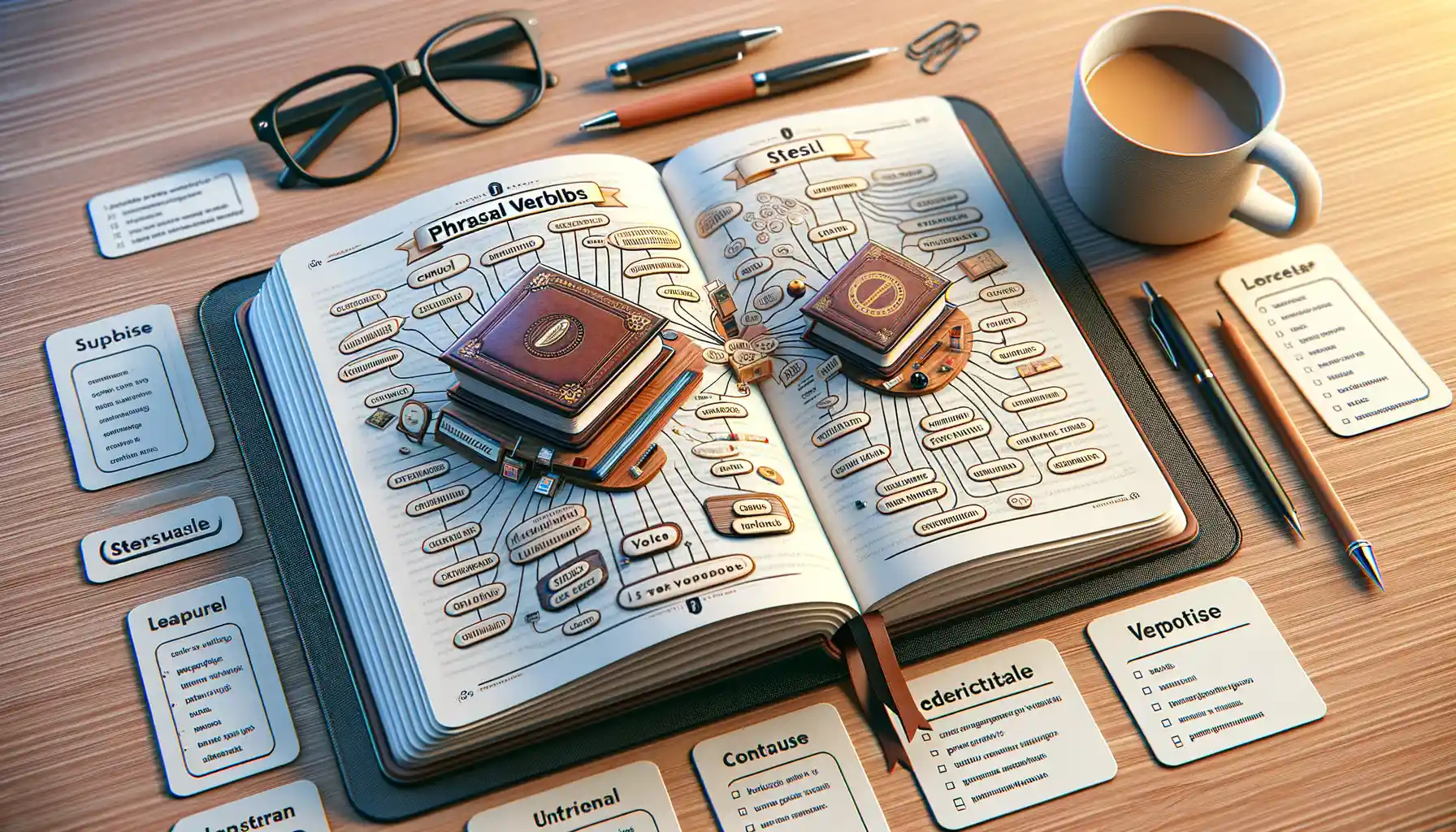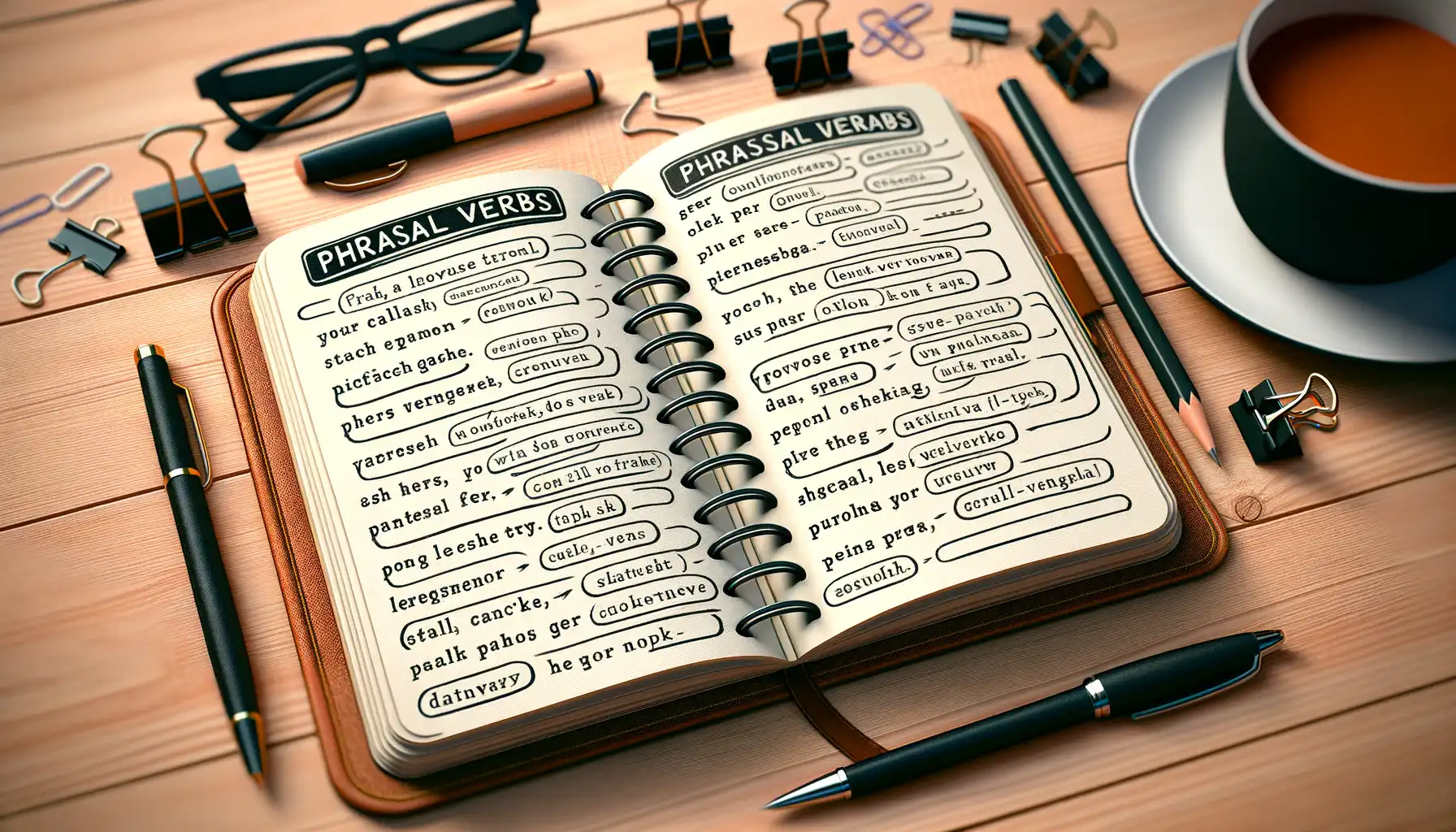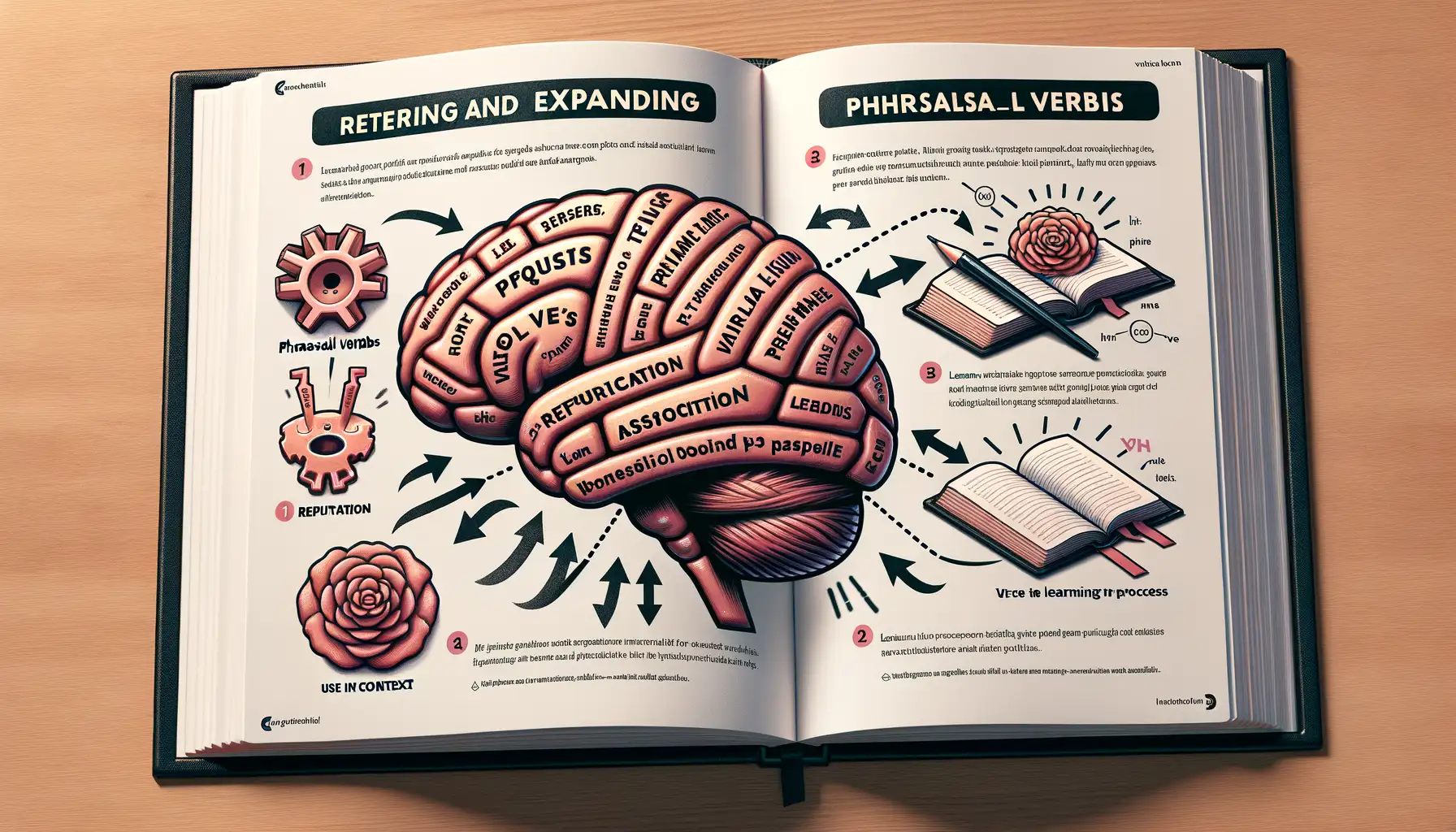Understanding the Basics of Phrasal Verbs
What Exactly Are Phrasal Verbs?
Phrasal verbs are like the secret sauce of the English language. They’re those two- or three-word phrases that seem to give sentences an extra layer of meaning—or, let’s face it, extra confusion when you’re learning them. Think of “look up”, which can mean “search for information” (like on Google!) or literally gazing at the sky. Sounds simple? Well, not always!
Here’s the thing: they’re made up of a verb + a particle (a preposition or adverb), but their combined meaning often has nothing to do with the original verb itself. For example:
- Break down: Not about literally smashing something—it could mean a car stops working or someone gets too emotional.
- Give up: This isn’t about donating something; it means to stop trying or surrender.
Learning these is like unlocking a treasure chest of English fluency. They’re everywhere—in casual conversations, TV shows, and even professional emails. Ignore them, and you’ll feel like missing out on half the party!
Effective Strategies to Learn Phrasal Verbs

Turn Phrasal Verbs into Your Best Friends
Imagine this: phrasal verbs are like tricky dance moves. At first, they feel awkward and unpredictable. But what if you had a step-by-step guide—or even better, a dance coach? That’s exactly how you should approach learning them!
Start by focusing on *meaning clusters*. For example, group together phrasal verbs related to movement: “get up”, “sit down”, and “run off”. Spotting patterns makes them less intimidating. And don’t just stare at a list—create flashcards or sticky notes with vivid examples. Picture this: “I ran off with the last cupcake at the party.” It sticks, right?
Practice With Personal Context
To make these verbs truly yours, use them in sentences that reflect your life. Think of your commute, your hobbies, or even your favorite TV show. For example:
- “I need to catch up on my favorite series tonight!”
- “He told me to calm down, but I was too excited about the concert.”
Dive into music, sitcoms, or everyday conversations where phrasal verbs naturally pop up. Trust me, once you spot them in action, they won’t seem like strangers anymore—they’ll feel like part of your personal toolkit.
Commonly Used English Phrasal Verbs with Examples

Unlocking the Magic of Everyday Phrasal Verbs
Want to sound like a natural English speaker? Phrasal verbs are your secret weapon! These little combos of verbs and prepositions—or particles—bring so much color and nuance to your conversations. Let’s dive into some popular ones that you’ll hear everywhere, from casual chats to professional meetings.
- Break down: Ever had your car suddenly stop working? That’s it breaking down. It works for emotions too, as in “She broke down in tears after the movie.”
- Carry on: Basically, keep going! “Don’t mind the noise—just carry on with your work.” Motivational, isn’t it?
- Run into: To meet someone unexpectedly, like running into an old friend at the supermarket. Heartwarming surprise, right?
How These Phrasal Verbs Change Context
Here’s the kicker: many phrasal verbs pack different meanings depending on how they’re used. Take “pick up”. You could pick up groceries, pick up a new skill, or even pick someone up from the airport. Isn’t that versatility incredible?
Mastering these verbs isn’t just about memorization—it’s about spotting them in action. Listen closely during movies, podcasts, or even everyday gossip. You’ll soon start seeing patterns and connections you didn’t notice before!
Practicing English Phrasal Verbs in Context

Dive Into Real-Life Scenarios
Picture this: You’re in a bustling coffee shop, and a barista tells you they’ll “whip up” your latte. If you know what “whip up” means, you’re already halfway to mastering phrasal verbs! But here’s the catch—phrasal verbs are slippery little things. To truly make them stick, you’ve got to swim with them in their natural habitat: real-life contexts.
Immerse yourself in everyday conversations, TV shows, or podcasts. Let’s say you’re watching your favorite sitcom, and someone says, “I need to figure out this mess.” Boom! You’ve just encountered another gem. Now pause, rewind, jot it down—and try it for yourself. Use it in a sentence like, “I need to figure out my weekend plans.” Repeat!
- Write a short dialogue with phrasal verbs sprinkled throughout—your creative flair will thank you.
- Role-play scenarios: Call a friend and agree to “hang out,” or inform them you’ll “pick them up” soon.
The secret is simple: practice often and make it personal. The more you connect phrasal verbs with your daily life, the more automatic they’ll feel—like second nature!
Tips for Retaining and Expanding Your Phrasal Verb Knowledge

Turn Phrasal Verbs Into Your Daily Allies
Phrasal verbs might feel like slippery fish at first—hard to grab and even harder to keep hold of. The key? Make them part of your everyday life! It’s not just about learning; it’s about making them work for *you*. Create personalized flashcards with phrases that resonate. Are you always “running out of time” or “catching up” on Netflix series? Write those down!
Even better, keep your eyes peeled in real life. When you overhear someone say, “Let’s sort this out,” don’t let it fly past you. Pause (even if only in your head) and think: *What does sorting out really mean in this context?* That moment of reflection is pure gold for memory.
- Label objects or places around your home with sticky notes using phrasal verbs: “Turn off” by the light switch; “Put away” above your closet.
- Watch YouTubers who use casual English—and mimic their tone and expressions!
Embrace Variety and Challenge Yourself
Learning thrives on variety. Never stick to one method—or one mood! Some days, dive into books peppered with rich phrasal verb usage like John Green’s novels. Other days, gamify the process with fun apps like Phrasalstein, which turns learning into a quirky adventure.
Challenge yourself to upgrade basic verbs into something more conversational. Instead of saying, “I’ll cancel the meeting,” spice it up with, “I’ll call off the meeting.” Practicing the switch will make these expressions second nature.
Lastly, recruit a buddy who’s also learning English. Try storytelling together but with a catch—each sentence needs to include at least one phrasal verb. Imagine the laughs during random sentences like, “The cat freaked out because I turned on the vacuum.”





